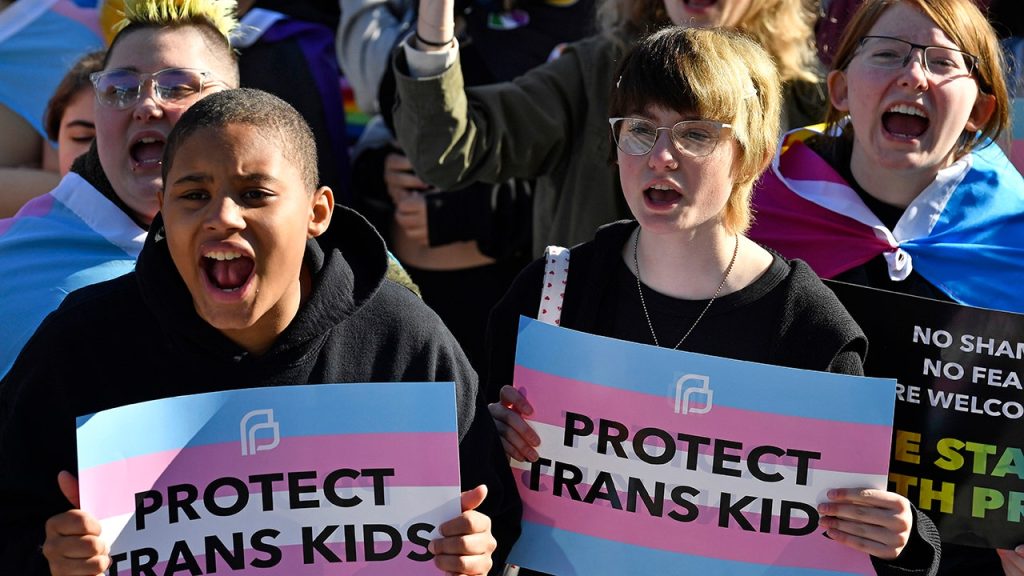The American Civil Liberties Union (ACLU) is suing the state of Ohio for a law that is set to take effect next month, which prohibits gender transition surgeries and hormone blockers for minors. The lawsuit is on behalf of two 12-year-old transgender girls and their families, who are asking the court to block the law from being enacted. Ohio State Attorney General Dave Yost has stated that his office is prepared to defend the law, arguing that children are protected with various restrictions that do not apply to adults. The ACLU believes that the ban on “gender-affirming” procedures and treatments will cause severe harm to transgender youth and that these decisions should remain between families and doctors, not politicians.
The law, known as House Bill 68, also prohibits biological men who identify as transgender women from participating in women’s sports. Freda Levenson, a legal director at the ACLU, stated that the ban on gender-affirming procedures and treatments will cause children with gender dysphoria to suffer and violates their rights under the state’s equal protection clause. The lawsuit argues that the law is unconstitutional because it combines two different issues into one bill, violating the single-subject rule in the state’s constitution. The ACLU further asserts that gender-affirming hormone therapy has been shown to improve symptoms of gender dysphoria, depression, anxiety, and psychological functioning among transgender youth and young adults.
Ohio Governor Mike DeWine had originally vetoed the bill in December, citing concerns about protecting human life. He spoke with healthcare professionals who support puberty blockers for minors, as well as families with transgender children, who shared their experiences and the positive impact of such treatments. Despite DeWine’s veto, Ohio Republicans overrode it in January. The state’s medical board has declined to comment on the pending litigation. In response, more conservative states have passed laws restricting surgical and hormone blockers for minors, with some even criminalizing such procedures. On the other hand, more liberal states have implemented laws that protect these procedures and gender-transition drugs for transgender people and children.
The ACLU lawsuit against Ohio’s law argues that preventing medically necessary procedures will cause transgender youth to suffer and violates their rights under the state’s constitution. The ACLU contends that not intervening with gender-affirming medical care can result in significant harm to patients, leading to increased gender dysphoria associated with the development of secondary sex characteristics that do not align with their gender identity. The lawsuit also challenges the constitutionality of the bill, stating that it combines two unrelated topics – transgender participation in sports and restrictions on medical treatments – which violate the single-subject rule. The ACLU emphasizes that these decisions should be left to families and doctors, not lawmakers.
The debate over laws regarding gender transition surgeries and hormone blockers for minors is happening across the country, with some states taking a more conservative approach by restricting or criminalizing these procedures. Other states have implemented laws that protect these treatments, emphasizing the importance of allowing families and healthcare professionals to make decisions that are in the best interest of transgender youth. The ongoing legal battle in Ohio highlights the complexities of balancing the rights of minors with the concerns of legislators who believe they are acting in the best interest of children. This issue goes beyond legalities and delves into the emotional and personal experiences of families with transgender children, as they navigate the challenging decisions related to gender-affirming care.


